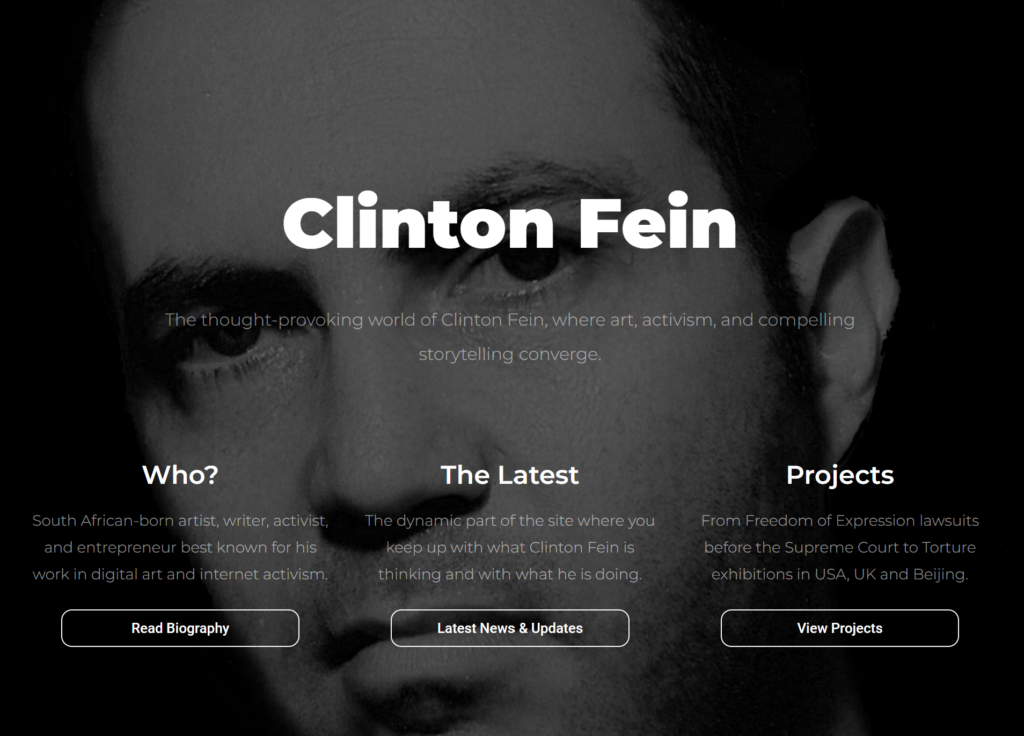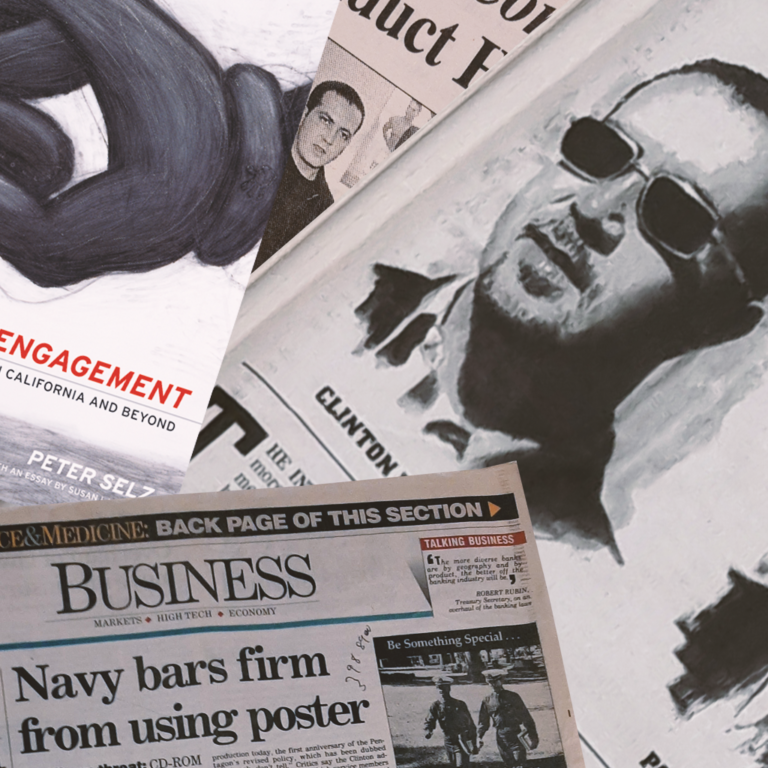
Reimagined
More and more content creators are turning their backs on social media platforms with their inconsistent and arbitrary content moderation policies, preferring spaces that accommodate personal autonomy and freedom of expression.
The Revamp
My website hasn’t been upgraded since around 2008. So much in my life has changed that it no longer reflected who I was and didn’t do that great a job communicating who I was.
From the outset, my art has been too controversial to rely on social media to display it. It’s not surprising, though. The advertisement for my first ever solo exhibition, Clinton Fein’s Annoy.com — about censorship — was accepted and then rejected by Artforum magazine after their publisher and editor, Knight Landesman, decided his readers couldn’t handle seeing Rudy Giuliani being disparaged (for his censorious actions as mayor of New York) in the wake of September 11th.
As social media became mainstream with the arrival of platforms like Facebook, Twitter, and YouTube, I couldn’t rely on those platforms to promote my work because they claimed the imagery or language violated their Terms of Service, despite their reliance on my precedents before the United States Supreme Court and federal courts to help indemnify them.
It wasn’t only social media. Before the opening of my Numb and Number exhibition in San Francisco, the printing company Zazzle physically destroyed two of my pieces depicting George W Bush being crucified and the iconic hooded photo of an Iraqi detainee taken by American servicemembers at the Abu Ghraib detention facility. (However, they didn’t have problems with images of Jesus being crucified.)
The video promotion for my Torture exhibition in 2008 garnered international attention and was exhibited in San Francisco, New York, Miami, London, and Beijing, among other cities. Renowned art historian Peter Selz wrote about it in Art in America and Zoe Trodd from Harvard University contextualized it at its opening at Toomey Tourell Gallery in San Francisco. That didn’t stop YouTube from removing the promotional video from their site — after it had been viewed more than 100,000 times.
All of my exhibitions’ works can be seen in the Art & Photography section of the site.
My activism in law and technology is detailed in the Activism & Law section.
Excerpts from my book Nothing in Moderation can be found in the Writing section (and where I will likely be launching a subscription-based publication of it.)
And, of course, my latest work (dealing with radical new approaches to understanding and mitigating bullying) with Bryan Schimmel can be found here, too, under Re: Bullying.
My work has been scrubbed, deleted, blocked, and destroyed on every social media platform I have attempted to use, with pious warnings and stern reprimands about community standards and content moderation policies that are confusing, ill-considered, lacking in context, and worthless. Facebook, Instagram, YouTube, TiTok – all the mind-numbing places where we are forced to engage like we are ignorant children incapable of discerning content ourselves. We supposedly need Meta and Twitter content nannies to protect us.
So my website, for now, remains the one truly reliable place I can say what I want in my words, with my images, and on my terms. My circus, my monkeys.
Explore it, and feel free to engage with me here too. However you see fit.
Select articles, news coverage and books from a plethora of publications covering Clinton Fein’s career as a technologist, activist, artist and speaker.
As an activist, with a Supreme Court victory over the Attorney General of the United States, Fein garnered international attention, including The New York Times, CNN and The Wall Street Journal.
Fein’s thought-provoking and controversial work as an artist caught the attention of prestigious educational institutions, including Harvard University, which recognized its socio-political relevance and ability to provoke crucial conversations about human rights, morality, and the boundaries of artistic expression.
